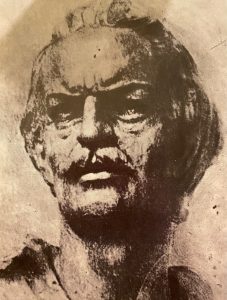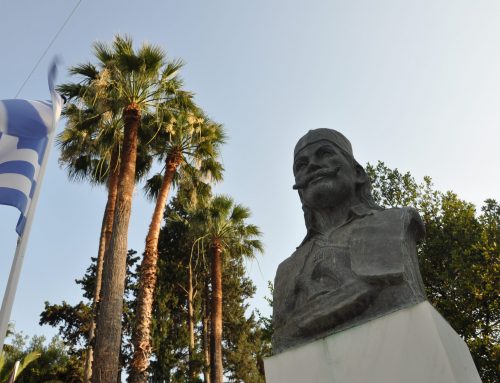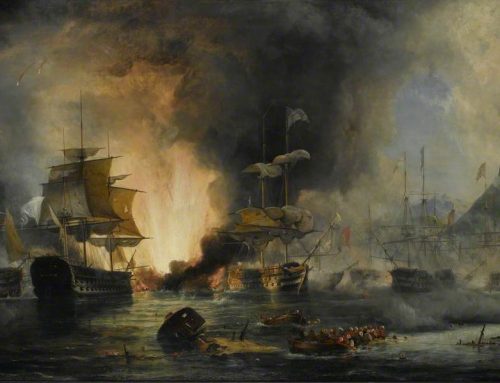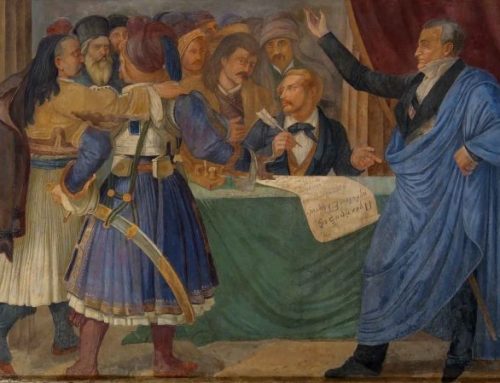
Seven Pashas fight poor Cassandra.
No one has set his foot on it, no one has captured it.
Lubut Pasha set his foot on it, Lubut Pasha captured it.
This is how a folk song describes the destruction of Cassandra and the slaughters by Abu Lubut’s Turks in Halkidiki in 1821. November 14th has been established as day of commemoration of the fighters and civilians who were slaughtered by the Turks in the Holocaust of Cassandra, when the last fortress of Halkidiki, namely the strait of Cassandra, also fell on November 14, 1821. In our time, the celebration is held with the town of Nea Potidaia as its centre.
During the Greek Revolution of 1821 Macedonia could boast of important events such as the uprising of Halkidiki led by Emmanuel Pappas from Serres and Captain Hapsas from Halkidiki.
The destruction of Cassandra (also called the great destruction or Holocaust of Cassandra) is a term denoting the merciless slaughter of the inhabitants of Hersonissos of Cassandra, the theft and grabbing of their fortunes, the enslavement of a great number of women and young children, the burning down of churches and houses, and the plundering and destruction of all the monastic dependencies (Metochia).
Halkidiki played a significant part in the Struggle for the Liberation of Hellenism from the Turkish yoke because of its crucial geographical position, its compact Greek population and its neighbourhood with Thessaloniki.
Photo: Emmanuel Pappas | Sketch by the sculptor C. Paleologos (National Historical Museum)




